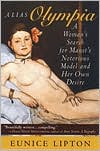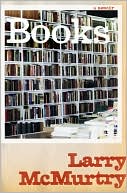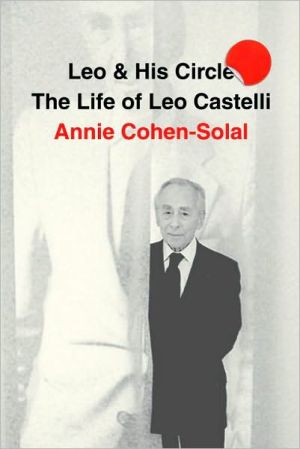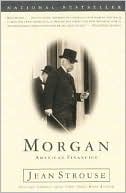Alias Olympia: A Woman's Search for Manet's Model and Her Own Desire
Eunice Lipton was a fledging art historian when she first became intrigued by Victorine Meurent, the nineteenth-century model who appeared in Edouard Manet's most famous paintings, only to vanish from history in a haze of degrading hearsay. But had this bold and spirited beauty really descended into prostitution, drunkenness, and early death-or did her life, hidden from history, take a different course altogether? Eunice Lipton's search for the answer combines the suspense of a detective...
Search in google:
In this stylish work of imaginative nonfiction, Eunice Lipton re-creates a provocative figure out of nineteenth-century art history, Victorine Meurent, the mysterious woman who modeled for Manet's most famous paintings, Olympia and Dejeuner sur l'herbe. Was Meurent, as her contemporaries would have had us believe, simply a drunkard, a prostitute? Or was she - whose defiant gaze from Manet's canvas provoked a riot - an accomplished artist in her own right? Through the streets of Paris, an American art historian sets out on an inquiry into the life of Victorine Meurent. As the pieces of an untold story begin to accumulate, something unforeseen happens to her. Every step she takes to undo the erasure of Meurent's life brings her face-to-face with the boundaries of her own. Every day she loses herself a little more in the other woman. Finally, their destinies become inextricably entangled. The historian uncovers, and evokes, the model's bohemian life in Paris: the cafe's and alleys of Montmartre; the painters' studios and salons; the squalor, scandal, and feverish creativity. And Victorine takes the historian on a long voyage home, to the Bronx of her childhood, to her immigrant father's dreams, to City College of the 1950s, and finally to her own repressed desire to be a writer. At once memoir and compelling detective story, Alias Olympia is on the cutting edge of contemporary trends in biography. Why should a life be valued only as a series of accomplishments? Eunice Lipton asks. What if biography were a tale of desire? How, then, would we tell a woman's life?Publishers WeeklyBy combing through libraries and archives in Paris and New York, Lipton ( Looking into Degas ) hoped to reconstruct the life of Victorine Meurent and prove that this mysterious 19th-century woman, an artist in her own right as well as the model for the famous nudes of Manet's Olympia and Dejeuner sur l'herbe, was more than the pathetic alcoholic who appears in academic studies by male art historians. Even though the results of her quest were meager--she found little about Meurent's life and was unable to locate any of her paintings--Lipton's account of her search is as exciting as a good detective story. Using reminiscences of her own troubled childhood as a catalyst and projecting her feelings and desires onto her elusive subject, she fleshes out the story and constructs a highly original portrait of Meurent, for whom she invents colorful monologues. The model emerges as a strong and independent woman who defies all efforts by traditional scholars to patronize and degrade her. Lipton's iconoclastic, feminist approach is refreshing and intriguing. (Jan.)
\ From the Publisher"Alias Olympia is an inspiration, to art historians and to students of art history at any level. Lipton's revelations about the profession of art history and the particulars of her engagement in it as a human being, as a woman, and as a feminist are a pleasure, poignant at many times, to read. The writing is direct and vivid, and the reader gets a fascinating view of the terrors and rewards of research, the scholar's insecurities and skills, and the interweaving of an individual's life and her work. Lipton's book is of great value because much of what she says as well as the way she says it-personally, humanly-goes publicly unsaid in academia, in art history, and in feminist scholarship. Alias Olympia dismantles the all too often deadening conservatism of art history and offers new ways of thinking and writing about the history of art."-Joanna Frueh, The University of Nevada\ "Suspenseful as a detective novel by Simenon, Alias Olympia rewards the reader at every turn."-Harriet Shorr, SUNY Purchase\ \ \ \ \ \ Publishers Weekly\ - Publisher's Weekly\ By combing through libraries and archives in Paris and New York, Lipton ( Looking into Degas ) hoped to reconstruct the life of Victorine Meurent and prove that this mysterious 19th-century woman, an artist in her own right as well as the model for the famous nudes of Manet's Olympia and Dejeuner sur l'herbe, was more than the pathetic alcoholic who appears in academic studies by male art historians. Even though the results of her quest were meager--she found little about Meurent's life and was unable to locate any of her paintings--Lipton's account of her search is as exciting as a good detective story. Using reminiscences of her own troubled childhood as a catalyst and projecting her feelings and desires onto her elusive subject, she fleshes out the story and constructs a highly original portrait of Meurent, for whom she invents colorful monologues. The model emerges as a strong and independent woman who defies all efforts by traditional scholars to patronize and degrade her. Lipton's iconoclastic, feminist approach is refreshing and intriguing. (Jan.)\ \ \ Library JournalHaunted by the steadfast gaze of the nude peering from the canvas of Manet's controversial ``Olympia,'' art historian Lipton ( Looking into Degas: Uneasy Images of Women and Modern Life , Univ. of California Pr., 1986) documents her relentless effort to unravel the model's life. Lipton's scant archival findings indicate that, in marked contrast to the lowly, depraved, alcoholic figure depicted by writers and artists, model Victorine Meurent was a recognized painter and a member of a distinguished society of artists. In the course of her research, Lipton imagines the thoughts of Meurent in some beautifully moving passages, and her own life begins to take on new meaning. She raises disturbing questions about the validity of much art historical scholarship concerning the role of women. A mesmerizing narrative recommended for women's studies, art history, and general collections.-- Joan Levin, MLS, Chicago\ \








